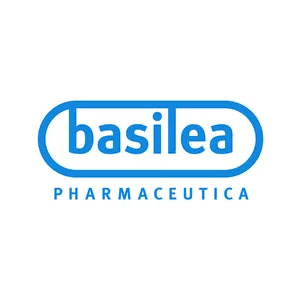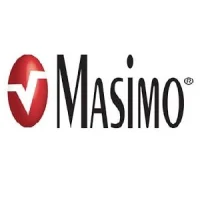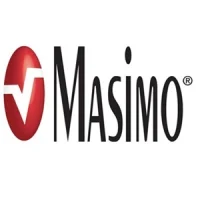- Tumor checkpoint controller BAL101553
demonstrates pre-clinical activity in treatment-refractory glioblastoma models
as single agent and in combination treatment
- PanRAF/SRC kinase inhibitor BAL3833 inhibits
tumor growth in preclinical KRAS-driven cancer models
Basilea Pharmaceutica Ltd. has announced that preclinical data on the oncology drug candidates BAL101553 and BAL3833 were presented at the American Association for Cancer Research (AACR) annual meeting in New Orleans, USA, April 16-20, 2016. The tumor-checkpoint controller BAL101553 is currently in Phase 1/2a clinical development, and the panRAF/SRC kinase inhibitor BAL3833 is currently in Phase 1.
At the AACR meeting, preclinical data were presented demonstrating anti-cancer activity of BAL101553 against glioblastoma multiforme (GBM), a highly malignant form of brain cancer that has very limited treatment options and often has poor prognosis. BAL101553 efficiently penetrates the brain in preclinical models and has previously demonstrated anti-cancer activity in treatment-refractory solid tumor models alone and in combination with radiotherapy.1 The data presented at the AACR were generated by the group of Prof. Jann N. Sarkaria (Mayo Clinic, Rochester) and demonstrate statistically significant single agent activity in a panel of in vivo GBM models after daily, oral administration, including models refractory to temozolomide (TMZ) and radiotherapy, the standard of care for newly diagnosed GBM. Moreover, using a model with reduced sensitivity to both radiotherapy and TMZ, BAL101553 combined with either radiotherapy alone or radiotherapy and TMZ together provided additional benefit, leading to statistically significant prolongation of survival as compared to the standard of care treatment regimens. These data indicate that BAL101553 alone or in combination may provide a survival extension in GBM patients, potentially offering an alternative therapeutic option in this area of high medical need. BAL101553 is currently being evaluated in phase 1/2a clinical trials with both oral and i.v. administration schedules.
In a late-breaking research session, the groups of Prof. Caroline Springer (The Institute of Cancer Research, London) and Prof. Richard Marais (Cancer Research UK Manchester Institute, University of Manchester) reported that the novel panRAF/SRC kinase inhibitor BAL3833, also known as CCT3833, has anti-cancer activity in KRAS-driven in vitro and in vivo tumor models via inhibition of the RAF and SRC family kinases. KRAS is an important driver of tumor cell growth, with high rates of KRAS mutation found in several major cancer types, including pancreatic, colorectal and non-small-cell lung cancer. BAL3833 inhibits mutant BRAF as well as the CRAF and SRC protein kinases and was initially developed to address the increasing medical need of melanoma patients who progress on current mutant BRAF pathway inhibitors. The data presented show that BAL3833 may also be effective in non-melanoma KRAS-mutant cancers, potentially providing a new therapeutic option for these patients. Orally administered BAL3833 is currently being explored in a phase 1 clinical study in patients with solid tumors, including BRAFmutant and BRAF inhibitor-resistant melanomas.
BAL1011553 poster at AACR 2016
- The
novel tubulin-binding ‘tumor checkpoint controller’ BAL101553 has anti-cancer
activity alone and in combination treatments across a panel of GBM
patient-derived xenografts – Ann C. Mladek, Jenny L. Pokorny, Heidi Lane, Felix
Bachmann, Mark A. Schroeder, Katrina K. Bakken, Brett L. Carlson, Paul A.
Decker, Jeanette E. Eckel-Passow, Jann N. Sarkaria; Abstract 4781
BAL3833 poster at AACR 2016
- Therapeutic efficacy of the paradox-breaking panRAF and SRC drug
CCT3833/BAL3833 in KRAS-driven cancer models – Grazia Saturno, Filipa Lopes,
Maria Romina Girotti, Ion Niculescu-Duvaz, Dan Niculescu-Duvaz, Alfonso Zambon,
Lawrence Davies, Louise Johnson, Natasha Preece, Amaya Viros, Malin Pedersen,
Robert McLeary, Ruth Knight, Rebecca Lee, Denys Holovanchuk, Alberto Fusi, Paul
Lorigan, Nathalie Dhomen, Richard Marais, Caroline Springer; Abstract LB-212
References
1 A. Broggini-Tenzer et al. The novel microtubule-destabilizing drug BAL101553 (prodrug of BAL27862) sensitizes a treatment refractory tumor model to ionizing radiation. EORTC-NCI-AACR symposium 2014, abstract 202
2 L. R. Molife et al. Phase 1/2a trial of the novel microtubule inhibitor BAL101553 in advanced solid tumors: Phase 1 completed. American Society of Clinical Oncology (ASCO) annual meeting 2014, abstract 2562
3 G. E. Duran et al. In vitro activity of the novel tubulin active agent BAL27862 in MDR1(+) and MDR1(-) human breast and ovarian cancer variants selected for resistance to taxanes. American Association for Cancer Research (AACR) annual meeting 2010, abstract 4412
4 F. Bachmann et al. BAL101553 (prodrug of BAL27862): A unique microtubule destabilizer active against drug refractory breast cancers alone and in combination with trastuzumab. American Association for Cancer Research (AACR) annual meeting 2014, abstract 831
5 A. Schmitt-Hoffmann et al. BAL27862: a unique microtubule-targeted agent with a potential for the treatment of brain tumors. AACR-NCI-EORTC symposium 2009, abstract C233
6 F. Bachmann et al. BAL101553 (prodrug of BAL27862): the spindle assembly checkpoint is required for anticancer activity. American Association for Cancer Research (AACR) annual meeting 2015, abstract 3789
7 M. R. Girotti et al. Paradox-breaking RAF inhibitors that also target SRC are effective in drug-resistant BRAF mutant melanoma, Cancer Cell 2015 (27), 85-96
Source & Image Credit: Basilea










